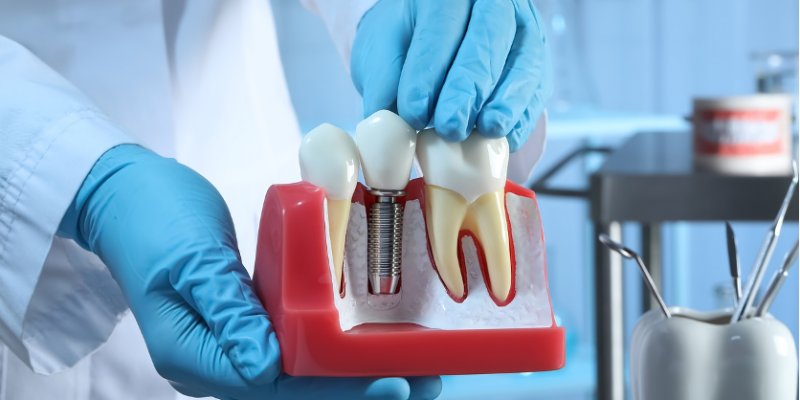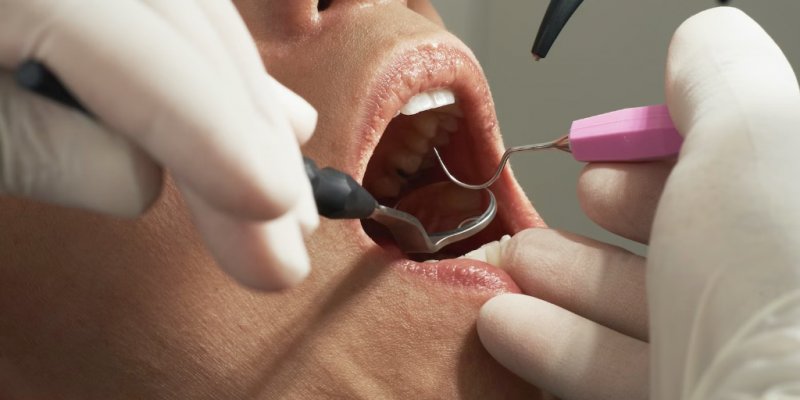Dental Implant Grants: Scam or Real?

Dental implants are increasingly becoming the go-to solution for people who have lost one or more teeth. However, given the high costs associated with this treatment, many individuals find themselves scouring the internet for financial assistance to afford these procedures, often stumbling upon so-called 'dental implant grants.'
Are dental implant grants scam or real? In this comprehensive guide, we will peel back the layers on these grants, exploring their legitimacy, and discussing the alternatives available to help you afford your dental implants.
Understanding Dental Implant Grants
The concept of dental implant grants seems straightforward. They are pitched as free money that does not need to be repaid, which could significantly reduce the financial burden of dental implant procedures. However, the question that arises is, are these grant programs real?
The Reality of Dental Implant Grants
The truth about dental implant grants is not as straightforward as one might wish. Regrettably, free government grants for dental implants do not exist. In contrast, the federal government redistributes wealth in the form of funding to universities, non-profits, and state departments to promote public welfare.
For instance, an organization known as Cosmetic Dentistry Grants asserts to offer partial grants for numerous cosmetic dental procedures. However, their approach is based on a referral system, where they connect you with a dentist in their network. This dentist charges you for a consultation, and then they offer you a 'discount' on your treatment. This arrangement ends up being more expensive than if you had sought services from a different provider without a grant.
Therefore, it is essential to approach these so-called dental implant grants with caution. In many cases, they are not genuine grants but rather cleverly disguised marketing ploys.
Government Assistance for Dental Care
While the federal government does not directly provide grants for dental implants, there are several government benefits and programs that can indirectly reduce the cost of your dental procedures.
Government Benefit Programs
Several government benefit programs can work as de facto dental implant grants by reducing unrelated expenses. By saving money on food, transportation, childcare, shelter, home repair, energy use, and more, you can amass enough savings to cover your dental implant procedures.
Medicare and Medicaid
Medicare and Medicaid programs can serve as substitutes for dental implant grants by lowering specific treatment costs. Medicare, the federal health insurance program for seniors and disabled adults receiving SSDI, covers dental implants for some seniors enrolled in Advantage Plans (Part C).
On the other hand, Medicaid, the federal health insurance program for low-income families, covers specific early-stage treatment costs. It's important to note that Medicaid does not cover dental implants but could pay for several early-stage procedures depending on your state of residence.
Federal and State Tax Breaks
IRS-sanctioned tax breaks can substitute for government grants for dental implants by directly lowering costs and providing an ideal financing mechanism. Three programs with unique pros and cons include Itemized Deductions, Flexible Spending Account (FSA), and Health Savings Account (HSA).
State government-sanctioned tax breaks can further reduce dental implant costs using the same mechanisms: Itemized Deductions, FSAs, and HSAs. The savings depend on the marginal tax rate where you work.
City Tax Breaks
City government-sanctioned tax breaks can also act as dental implant grants, but they follow a slightly different protocol. The pre-tax FSA and HSA options might lower treatment costs by reducing the amount of income subject to municipal taxes, depending on local rules.
Dental Implant Grants for Specific Populations

While free government grants for low-income families do not exist, certain demographic groups have alternatives to reduce costs for permanent replacement teeth.
Senior Citizens
Seniors enrolled in a Medicare Advantage Plan with oral care benefits can attain affordable dental implants. These programs limit claim payments to an average of $1,500 annually, but in-network discounts and spreading treatment over two years can maximize their utility.
Disabled Individuals
People receiving SSI and SSDI have a hidden advantage, especially if they have special needs. Several charities prioritize individuals with disabilities because their needs are apparent, and people have extra compassion for those with developmental challenges.
Single Mothers
Single mothers often qualify for other programs that help them save enough money to pay for dental procedures out-of-pocket. Government assistance for single mothers with no income reduces everyday expenses, enabling solo parents to save for rent, childcare, infant formula, work transportation, and more.
Military Veterans
Former military service members might defray dental expenses through the Veterans Administration, which provides free dental care to former service members fitting specific criteria.
Recovering Addicts
Low-income recovering addicts have a harder time pinpointing programs that can help them with dental implants. However, the Substance Abuse and Mental Health Services Administration offers noncompetitive block grants that provide funding for treatment centers, which could be a starting point.
Dental Implant Assistance by State
There are also state-specific resources that can help residents reduce the cost of their dental implants. These resources vary in scope and can significantly impact your budget.
Dental Implant Assistance in Your State
The most abundant and valuable allegorical government grant for dental implants offers an alternative treatment to replace missing teeth: dentures. Medicaid covers dentures in several states, making them a viable alternative for low-income adults meeting the criteria.
State-Specific Assistance
Certain states offer more resources and benefits for dental implants. For example, California has several programs operating at the highest levels, while Texas offers little help in lowering costs. Meanwhile, New York represents a middle-of-the-road example with some extra benefits for NYC workers.
Overcoming the Dental Implant Grant Scam

It's unfortunate that dubious entities exploit individuals genuinely in need of help. That said, there are ways to identify scams and sift through the noise for genuine assistance.
Spotting Scam Grants
Legitimate grants have eligibility requirements, can be verified, have professional copywriting, and openly disclose their funding sources. Always get a second opinion on any quotes you receive and look for reviews on non-biased sources.
Genuine Alternatives to Dental Implant Grants
While dental implant grants may not exist, there are several ways to reduce dental implant costs. These include exploring dental schools, tapping into VA Department resources for veterans, considering dental discount plans, and using Care Credit.
FAQs About Dental Implant Grants
Navigating the landscape of dental implant grants can be overwhelming. Here are answers to some frequently asked questions to help clarify some common concerns.
Does Medicaid pay for dental implants?
In states where Medicaid covers dental expenses, the program usually covers dentures but not implants. Dental implants are considered an elective cosmetic option, which Medicaid typically does not cover.
Are there government grants for dental implants?
Unfortunately, no. There are no legitimate government grants available that directly assist with dental implants.
What are some alternatives to dental implants?
If you cannot afford a dental implant, there are less-expensive treatments that may be able to assist you. These include bridges, dentures, flippers, and more. Some of these may be covered by Medicaid or genuine dental grants.
Conclusion
While the idea of dental implant grants can be enticing, it's crucial to understand the reality. Most grants advertised are not genuine, and individuals should be cautious when navigating these offers. However, several legitimate government benefits, tax breaks, and specific demographic resources can help reduce the cost of dental treatments. Always do your research, ask questions, and seek second opinions when exploring your options for dental implant financing.
More to Read:
Previous Posts:





